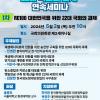수, 2023년 6월 28일 - 02:38

IAEA의 후쿠시마 원전 오염수 해양방류 안전성 검증 관련 공개 질문
국제원자력기구(IAEA)는 원자력의 평화적 이용을 위한 연구와 국제 협력을 위해 노력해왔습니다. 일본 후쿠시마 원전오염수 해양방류에 대한 IAEA의 검증도 국제법과 국제기준에 부합하고 인간과 환경에 해를 끼치지 않는다는 것이 반드시 확인되어야 할 것입니다.
이에 더불어민주당 후쿠시마원전오염수해양투기저지대책위원회는 IAEA의 검증과정과 관련하여 다음 문제제기에 대한 입장을 밝히길 요구합니다.
(일본 측이 요청한 방류계획의 검증과 관련해)
1. IAEA 안전성 검증 시 교반(흔들어 섞음)한 시료 채취는 단 1회뿐이었기 때문에 시료의 대표성 확보가 어렵다고 보는데, 이에 대한 입장은 무엇입니까.
2. IAEA는 안전성 검증비용에 대해 일본의 지원을 얼마나 받고 있습니까? 받고 있다면 검증의 중립성을 보장하기 어렵다고 보는데, 이에 대한 입장은 무엇입니까.
3. 도쿄전력이 원전 사고 당시 노심용융 되었다는 점, 알프스 고장, 알프스로 탄소14 등이 걸러지지 않는다는 점 등을 은폐하는 것을 포함해 과거 수십 차례에 걸쳐 데이터를 조작하고 거짓말을 한 사례를 미루어 볼 때 도쿄전력이 제출한 데이터를 신뢰하기 어렵고 방류 운영의 신뢰성도 보장하기 어렵다고 보는데, 이에 대한 입장은 무엇입니까.
4. 삼중수소 및 기타 방사성 핵종이 해양환경에 미치는 장기적인 영향 평가가 없기 때문에 방류의 안전성을 보장하기 어렵다고 보는데, 이에 대한 입장은 무엇입니까.
(국제법, IAEA헌장, 세계인의 생명과 재산 보호의 관점에서)
1. 일본의 오염수 방류는 '그 행위로 인한 이익이 피해보다 커야한다'는 IAEA 안전지침 GSG-8 정당화 요건에 위배되므로 문제가 해결되기 전까지 방류가 이루어져서는 안된다고 보는데, 이에 대한 입장은 무엇입니까.
2. 일본의 오염수 방류는 '설사 정당화되더라도 그 정당화된 행동들이 합리적으로 달성 가능한 한 낮게 피해를 유지해야 한다'는 IAEA 안전지침 GSG-8 최적화 요건 달성을 위해 해양 방류 외 시멘트 고형화 처리, 대형 저장탱크 보관 등의 대안을 우선적으로 검토해야 한다고 보는데, 이에 대한 입장은 무엇입니까.
3. ALPS는 지난 10년간 46차례나 고장난 사례가 있어 그 성능에 대한 의구심이 드는데도 이에 대한 검증이 이루어지지 않았습니다. 방류 안전성 확보를 위해 ALPS의 성능과 운영에 대한 국제적인 검증이 필요하다고 보는데 이에 대한 입장은 무엇입니까.
4. 인접국가와 해양환경 생태계에 대한 영향평가가 IAEA 별도로 이루어지지 않아 방류의 안전성을 보장하기 어렵다고 보는데, 이에 대한 입장은 무엇입니까.
5. 정상원전과 사고원전에서 배출되는 방사성 핵종이 다르기 때문에 이에 대한 방류 결정을 하기 위해서는 사고원전 관리에 대한 별도의 국제적 기준이 필요하다고 보는데, 이에 대한 입장은 무엇입니까.
6. IAEA 안전지침 GSG-9에는 “기존 수준을 파악하기 위해 환경 내 추가 방사성 핵종에 대한 조사의 필요성”을 강조하고 있습니다. 하지만 후쿠시마 원전 오염수 해양 방류 시 방사성 물질이 해양 퇴적물 내 축적 및 퇴적물에 서식하는 생물체에 미치는 영향 분석이 없어 GSG-9 지침을 위반했다는 의견이 있는데, 이에 대한 입장은 무엇입니까.
7. 일본의 오염수 방류는 해양환경 보전 의무를 명시한 유엔해양법과 폐기물의 해양투기를 금지한 런던협약 및 의정서에 위배된다고 보는데, 이에 대한 입장은 무엇입니까.
8. 세슘 기준 180배 초과 우럭과 같이 방류 전에도 비계획적 방사성 물질 유출이 이루어지고 있어 이에 대한 구체적인 실태파악과 비계획적 유출에 대한 통제방안이 있어야 한다고 보는데, 이에 대한 입장은 무엇입니까.
9. 후쿠시마 원전의 폐로 완료까지는 최소 100년에서 300년까지 걸린다는 의견이 있습니다. 폐로 단계에서 추가적으로 발생하는 오염수의 처리문제, 폐로 과정에서 발생하는 안전문제가 검증되어야 방류 여부를 결정할 수 있다고 보는데, 이에 대한 입장은 무엇입니까.
10. 일본의 원전 오염수 해양방류와 관련해 일본 측이 요청한 검토 내용 이외에 추가적으로 어떤 검토가 이루어져야 방류에 문제가 없다고 보고 있습니까?
2023.6.28.
더불어민주당 후쿠시마원전오염수해양투기저지대책위원회
국회의원 위성곤(위원장), 양이원영(간사), 김상희(고문), 우원식(고문), 김승원, 김원이, 김회재, 박범계, 윤영덕, 윤재갑, 윤준병, 이용빈, 이원욱, 이장섭, 이재정, 이정문, 전용기, 주철현, 최기상
<영문본>
The International Atomic Energy Agency (IAEA) has been devoted for research and international cooperation for the peaceful use of nuclear energy. As such, it must be assured that the IAEA's review of the Fukushima radioactive water ocean discharge plan also conforms to international laws and standards and does not harm humans and the environment.
Accordingly, the Committee for Countermeasures against Fukushima radioactive water ocean discharge of the Democratic Party of Korea requests the IAEA to state their position on the following raised concerns and questions in regards to the review on the discharge plan.
(In regards to reviewing the discharge plan as requested by Japan)
1. The samples collected by the IAEA are not seen as fully representative of the radioactive water in the Fukushima nuclear power plant as the sampling was done only once during the IAEA’s safety review. What is the response of the IAEA to this concern?
2. How much financial support is the IAEA receiving from Japan for the safety review? If the IAEA is receiving financial support from Japan, the neutrality of the review cannot be easily assured. What is the response of the IAEA to this concern?
3. Considering the many past instances where Tokyo Electric Power Company (TEPCO) manipulated data and provided false statements such as concealing the core meltdown of the Fukushima nuclear power plant, that the ALPS does not filter carbon-14, and the functioning failure of the ALPS, it is difficult to trust the data submitted by TEPCO and ensure the reliability of its operation of the discharge plan. What is the response of the IAEA to this concern?
4. The safety of the Fukushima radioactive water ocean discharge plan cannot be guaranteed because no review has been conducted on the influence of tritium and other radionuclides on the marine environment and ecosystem of the neighboring countries. What is the response of the IAEA to this concern?
(From the perspective of international law, the IAEA Charter, and the protection of life and property of people around the world)
1. Japan’s decision to release the radioactive water violates the justification requirement of the IAEA’s safety guideline GSG-8, which requires “the expected benefits to individuals and to society from introducing or continuing the practice to outweigh the harm resulting from the practice.“ Therefore, the release must be halted until this problem is resolved. What is the response of the IAEA to this concern?
2. In order to comply to IAEA’s safety guideline GSG-8’s optimization criterion that requires “the harm of justified actions to be kept as low as reasonably achievable”, Japan should review alternative methods such as solidifying the water by mixing with concrete or storing in massive storing tanks. What is the response of the IAEA to this concern?
3. The capability of the ALPS is questioned due to its past record of experiencing 46 breakdowns during the last 10 years, but no investigations regarding this issue have taken place. The need for conducting an international review on the functional capability and operating system of the ALPS is being recognizaed in order to assure the safety of the ocean discharge plan. What is the response of the IAEA to this concern?
4. The safety of the Fukushima radioactive water cannot be assured because no review has been conducted on the discharge plan’s influence on the marine environment and ecosystem of the neighboring countries. What is the response of the IAEA to this concern?
5. As radionuclides created from a normally functioning nuclear power plant and a nuclear power plant that has experienced an accident are different, there must be a separate international guideline on managing nuclear power plants that have experienced an accident to decide whether to release the radioactive water. What is the response of the IAEA to this concern?
6. The IAEA’s safety guideline GSG-9 underlines the “need for a survey of these additional radionuclides in the environment to determine pre-existing levels.” However, there are views that the discharge plan violates the GSG-9 guideline because no review has been conducted on the accumulation of the radioactivity in sediments and its influence on organisms inhabiting the sediments. What is the response of the IAEA to this concern?
7. Japan’s decision to release radioactive water into the ocean violates the United Nations Convention on the Law of the Sea, which states the duty to preserve the marine environment, as well as the London Convention and Protocol, which prohibits the dumping of waste at sea. What is the response of the IAEA to this concern?
8. A detailed understanding of the reality and implementation of control measures regarding unplanned leakage of radioactive substances is highly necessary, as we are already witnessing Rock fish containing 180 times more cesium than normal standards. What is the response of the IAEA to this concern?
9. There exists an opinion that it will take at least 100 to 300 years to complete the decommissioning of the Fukushima nuclear power plant. The additional safety issues and treatment issues arising at the decommissioning stage must be reviewed to decide whether to release it or not. What is the response of the IAEA to this concern?
10. What additional reviews, aside from those requested by Japan related to the discharge plan, does the IAEA believe should be completed to eliminate any concerns or problems of the discharge plan?

